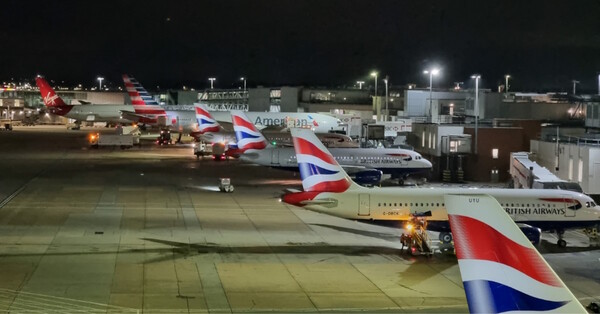You are viewing 2 of your 2 free articles
Analysis: AI ‘bubble’ and November Budget pose twin threats
We may be a month away from the Budget on November 26, but it’s certain there will be pain in store for households and probably for businesses from tax rises and spending cuts
News in September that government borrowing had outstripped forecasts by £11 billion only increased the pressure on Chancellor Rachel Reeves, with economists suggesting she needs to plug a near £30 billion hole in the Treasury’s finances.
Bond investors are urging Reeves to allow more ‘headroom’ than the current £9.9 billion she has allowed, leading to reports that the Treasury could double or triple this amount.
That would take the sum the Chancellor needs to raise beyond the £40-billion-worth of tax rises in the last Budget.
To make matters worse, the Office for Budget Responsibility (OBR) is set to downgrade its longstanding and overly optimistic productivity growth forecast, when a mere 0.2% markdown will have a near £18-billion-a-year impact.
In the circumstances, the under-pressure Chancellor may be preparing to renege on Labour’s manifesto pledge not to increase income tax, National Insurance or VAT rates, despite having consistently maintained the manifesto commitments would stand.
Reports suggest the Treasury is now considering raising income tax.
The Financial Times quoted a ’senior Labour source’ suggesting a tax rise is “increasingly likely”, with the government assessing the likely political impact as “a single punch to the face rather than a thousand cuts over a long period”.
It was striking that Darren Jones, appointed chief secretary to the prime minister in Keir Starmer’s September reshuffle, declined to repeat the commitment when pressed to do so at the Labour Party conference last month.
An added attraction for Reeves is that an income tax rise could help curb inflation, in contrast to an increase in VAT which would push up prices.
She could look to sweeten the pill by scrapping VAT on household energy bills. The Chancellor recently promised “targeted action around prices”, saying: “I want to bring down the cost of living for families.”
Pressure on Reeves eased a little with news that the inflation rate stayed at 3.8% in September, the same as August, when it had been expected to hit 4%. In turn, that eased the cost of government borrowing, allowing the Chancellor maybe £2 billion more to play with – still only a fraction of what she has to find.
"The AI hype cycle is holding up a lot of sky right now"
This would all be sobering enough without the Financial Times warning this month of a “market melt-up”, with “fund managers increasingly alarmed about everything”.
AI companies account for 80% of the gains in US stock prices this year and the FT suggested “the AI hype cycle is holding up a lot of sky right now, without which the US “might already be in recession”.
It warned “resurgent inflation would stop this exuberance in its tracks”, noting the shock may be exacerbated by the fact that “the US government shutdown has blacked out official data on the economy, so we are largely flying blind”.
‘Sudden correction’ warning
Both the Bank of England (BoE) and International Monetary Fund warned of a stock market crash last week as the AI boom drives valuations absurdly high. The BoE warned of a “sudden correction” and the IMF of an “abrupt” turn that “could drag down world growth”.
Deloitte UK chief economist Ian Stewart weighed in to warn: “A major reassessment of prospects for AI could trigger a dotcom-style bust.”
Other economists point out the AI investment ‘bubble’ is now 17 times the size of the dot-com frenzy and four times the subprime mortgage bubble of 2007.
Investors bet AI will deliver huge gains in productivity and lead to huge returns for them, but there is little sign of this productivity improvement to date – just colossal investment in data centres.
A symptom of the economy’s morbid condition is the price of gold which provides a bellwether for investor fears and has soared since the end of August.
BoE governor Andrew Bailey also warned of “alarm bells” ringing over risky lending when he appeared before a parliamentary committee on October 21.
The alarms were set off by the failures in the US of car-parts supplier First Brands and sub-prime car-loan provider Tricolor.
Both made use of so-called ‘asset-backed debt’. First Brands practised invoice financing – securing credit against invoices – and Tricolor repackaged car loans made to borrowers with no credit history into bonds sold on to investors, with all concerned seeming to believe there was no risk.
But as the financial crisis of 2007-09 proved, the reality is quite the opposite.
Bailey told the House of Lords financial services regulation committee: “We’re beginning to see slicing, dicing and tranching of loan structures, and if you were involved before [in] the financial crisis alarm bells start going off.”
He suggested it’s “a very open question” whether the US failures are “the canary in the coal mine”.
The IMF warned the previous week that the $4.5 trillion which US and European banks have tied up in hedge funds, private equity and other non-bank finance institutions could amplify any crisis and called for greater oversight of such funds.
In its twice-yearly report on global financial stability, the IMF noted “an uptick in the exposure of banks to non-banks”, with the latter now representing more than 40% of banking assets, reporting: “The ground is shifting in several parts of the financial system, giving rise to vulnerabilities.”
A symptom of the economy’s morbid condition is the price of gold which provides a bellwether for investor fears and has soared since the end of August.
UK economy
Against this eye-watering backdrop, we should note that the UK economy has grown this year, real wages continue to rise above the rate of inflation, consumers’ confidence in their own finances remains surprisingly strong and travel sales remain solid.
Barclay card spending data for September showed an overall decline but spending with travel agents was up 4.2% year on year – although tellingly the transactions with agents rose 18%, suggesting a sharp fall in value.
The Deloitte Consumer Tracker for July to September even showed a small rise in overall consumer confidence, with sentiment on job security up 1.2 percentage points although confidence in the UK economy was at its lowest (minus 64%) since the period of raging inflation in summer 2023.
Yet the UK economy grew by 0.3% in the three months to August following 0.7% growth in the first half of the year and the IMF forecasts the UK will be the second-fastest growing of the world’s most-advanced economies this year.
So, it’s not all doom and gloom. If anything, the UK’s creeping economic growth appears positively ‘balanced’ compared with that of the US. It’s just that there is an element of whitewater rafting to the situation for the travel sector.

















